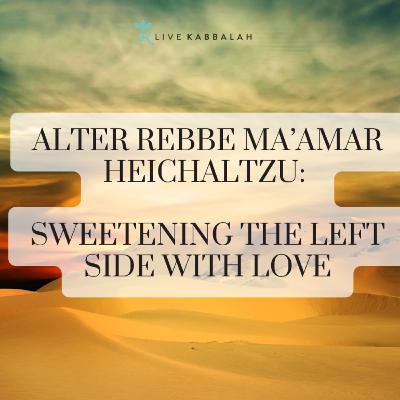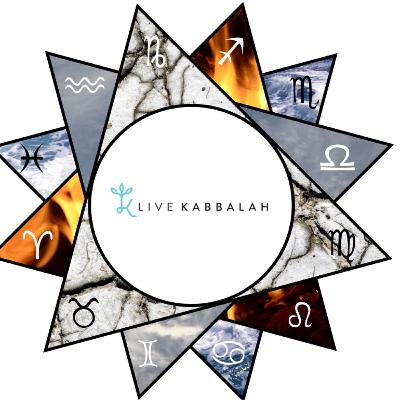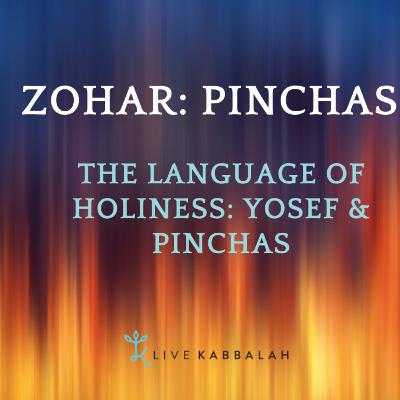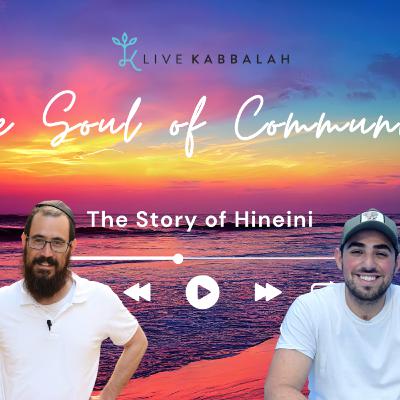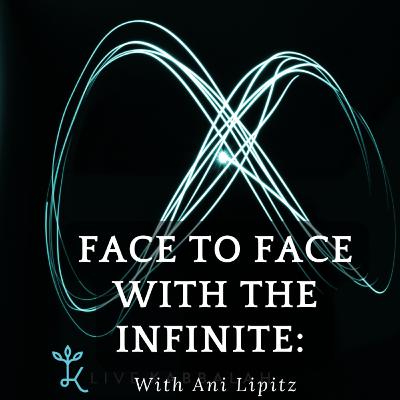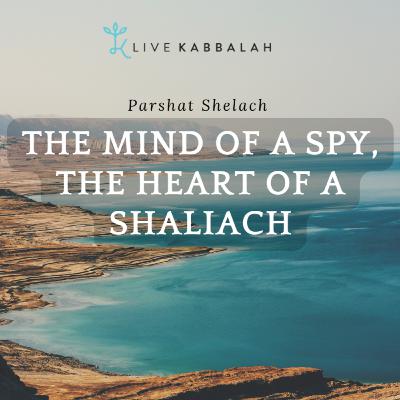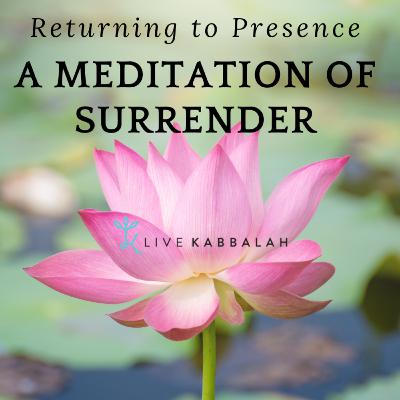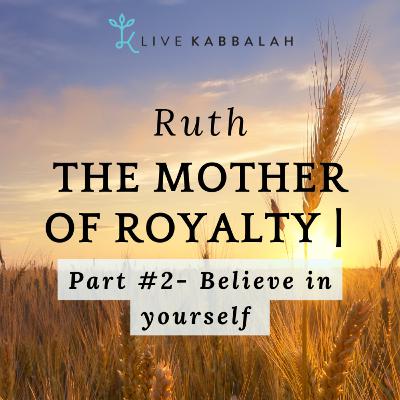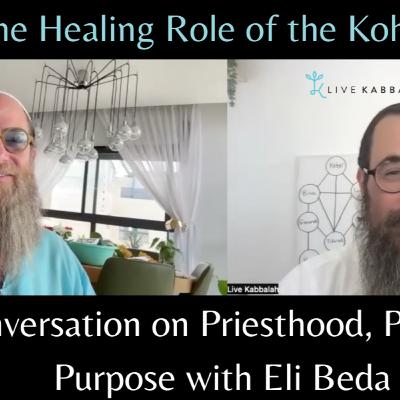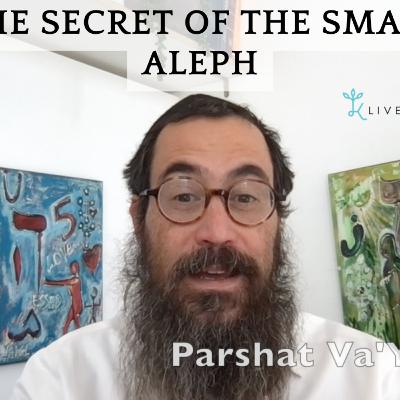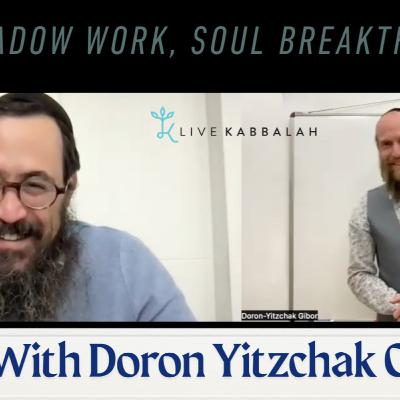Discover Live Kabbalah - With Rabbi Amichai Cohen
Live Kabbalah - With Rabbi Amichai Cohen

Live Kabbalah - With Rabbi Amichai Cohen
Author: Rabbi Amichai Cohen
Subscribed: 13Played: 132Subscribe
Share
© Rabbi Amichai Cohen
Description
Join Rabbi Amichai Cohen for profound Torah and Kabbalah wisdom, as well as meaningful conversations with special guests who share their insights on how we can live from a more authentic self. Delve into recordings of the weekly Inner Vibe classes.
info@livekabbalah.com
Website: www.Livekabbalah.com
info@livekabbalah.com
Website: www.Livekabbalah.com
106 Episodes
Reverse
A grounding class for turbulent times. with Rabbi Amichai from our Lightwarrior program. We explore how to stay anchored when the world feels unstable, working with faith, nervous system regulation, inner leadership, and simple daily practices that transform fear into presence, clarity, and quiet strength.
In Parshat Lech Lecha, we meet Avram, the first believer and influencer of the ONE G-d.Avram is asked to leave everything, family, familiarity and fame behind to go to go into the great unkown.Why was G-d asking him to leave everything behind? In this class, we learn about the courageous journey of Avraham, the first to reveal G-d’s oneness in a fragmented world. From his awakening to the call to “Go for yourself,” Avraham models the soul’s path of leaving comfort and ego behind to discover its Divine purpose. Through Kabbalistic and Chassidic insight, we explore the deeper meaning of his transformation from Avram to Avraham, the integration of the feminine hei, and the spiritual mission of bringing holiness into our everyday lives.
Shame is called the master emotion. It binds us into debilitating, self-loathing beliefs that we are dammened. In this class, we explore the root of shame, which goes back to Adam and Eve's primordial sin. After Adam's fall, shame seeped into the fabric of humanity. Return or teshuva has the same letters as shame - boshet. The very core of Teshuva - return is the return to our higher selves, which is eternally pure. Our ability to hold dualities and bring awareness to our shame-ridden patterns brings shame into the light.This is the return of humanity back to the place of love, compassion, joy and bliss our true birthright. Listen to this powerful class, which was shared on the Live Kabbalah Lightwarrior community during our weekly classes. 👉 Learn more or join us at LiveKabbalah.com
✨ Sweetening the Judgments with Love ✨In the second chapter of Heichaltzu, the Alter Rebbe teaches that the real war against Midyan is an inner one—a struggle to unite discipline (Gevurah) with kindness (Chesed). When judgment stands alone, it creates harshness, separation, and even spiritual exile. But when infused with compassion, its true purpose is revealed: to guide, uplift, and reconnect us to Hashem.Like black fire written on white parchment, the details of Torah law are held within an infinite sea of Divine love. Our mission is to sweeten life’s intensity with kindness, transforming conflict into harmony and revealing G‑d’s oneness in the world. 🌿🔥🤍
The Zohar in Parshat Pinchas reveals that while the stars and constellations shape much of human destiny, they do not define it absolutely. Our astrological charts may set the framework of our lives, but like Avraham Avinu, who was lifted beyond the stars to receive the promise of a child, we too can transcend these cosmic boundaries. The key lies in true connection—living Torah deeply, not just learning it intellectually. When we align with the divine source above creation, we rise beyond the sway of the constellations and tap into a higher flow of blessing, where miracles become possible and destiny is rewritten from above the stars.Book an in-depth Soul Mapping Session with Rabbi Amichaihttps://www.livekabbalah.com/Mentoring-With-Rabbi-Amichai
In our recent learning from the Zohar on Parshat Pinchas (Zohar III:213, Resha Gimmel), we uncover a powerful mystical teaching about Yosef HaTzaddik, temptation, language, and the secret connection between Yosef and Pinchas.The Zohar opens with Rabbi Chiya patach—"Rabbi Chiya opened"—with the verse from Tehillim (Psalms 81:6), “Edut b’Yosef Samo”—“He established it as a testimony for Yosef when he went out over the land of Egypt.” This verse, the Zohar teaches, is not just historical commentary but a gateway into understanding Yosef’s deep spiritual test and transformation.Yosef was granted the knowledge of all seventy languages, equal to Pharaoh, who was regarded as the most intellectually powerful man in Egypt. But the Zohar emphasizes something more: Yosef knew one language beyond them all—the Lashon HaKodesh, the holy tongue, Hebrew. This extra language was not merely linguistic but spiritual; it symbolized Yosef’s connection to the Divine.The Zohar then shifts to the well-known story of Yosef and the wife of Potiphar. It explains that when she attempted to seduce him, Yosef pretended not to understand her words. Although he already knew Egyptian, he acted as if he was confused by her language—avoiding engagement with her advances day after day. Only when she physically seized his cloak did he become visibly confronted by the test. At that moment, the Ruach HaKodesh, the Holy Spirit, cried out within him, invoking the verse from Mishlei (Proverbs), “To guard you from the foreign woman, from the stranger who uses seductive words.”This moment of inner strength and restraint, says the Zohar, became Yosef’s greatest testimony. The Adut—testimony—mentioned in the verse refers to his embodiment of the Sefirah of Yesod, the Divine attribute of foundation, which is deeply connected to sexual integrity and moral restraint.Because of Yosef’s merit, he was granted an additional letter in his name: the letter "Hey", becoming Yehosef. In Kabbalah, the letter Hey symbolizes the Shechinah, the Divine Presence. It was now integrated into Yosef’s very being, testifying that he had become a vessel for holiness.And then the Zohar draws a profound parallel: just as Yosef merited the Hey, Pinchas merited the letter Yud added to his name. Both letters—Hey and Yud—are facets of the Shechinah, representing different expressions of Divine energy. Yosef faced inner seduction and resisted. Pinchas faced societal collapse and acted. Both withstood immense spiritual pressure and aligned themselves with Divine will.Through this, the Zohar reveals a deeper mystery: Pinchas is rooted in the soul of Yosef. Both were alone in their moment of testing. Both chose righteousness. And both merited transformation—Pinchas ultimately becoming Eliyahu HaNavi, the eternal prophet.
In this opening class on the Alter Rebbe’s foundational ma’amar Heichaltzu, we explore the inner war against Midian—the force of separation, judgment, and baseless hatred. Discover how this spiritual battle is at the heart of our long exile, and how Torah learning has the power to bring peace between the upper and lower worlds. With deep insights into the Divine Name, the purpose of creation, and the path to unity, this session sets the stage for personal and collective redemption.
A Zohar-based journey into the soul’s hidden strength during exile. Discover how the Shechinah, Zion, Yosef, and Pinchas reveal your potential to break through darkness and awaken divine purpose.
In this powerful class based on the Zohar in Parshat Pinchas, we explore the deep mystical teachings on gilgulim—reincarnations—and the soul’s mission across lifetimes.Why do some souls return in this generation? What does it mean to inherit a body in the resurrection? And how did Pinchas, through one courageous act, elevate not only his soul but also the souls of Nadav and Avihu, becoming Eliyahu HaNavi?This class reveals how each of us has the power to do profound tikkun (repair) even if we feel “less worthy” than the souls of past generations. Our sincere actions in this generation carry immense spiritual weight.💫 Join our weekly reincarnation and soul-healing series in the Light Warrior Program on Live Kabbalah:www.livekabbalah.com/lightwarrior
What does it mean to say Hineni — I am here — in our world today?In this powerful episode, I sat down with Levi Saada, founder of Hineni, a soulful movement and community rooted in presence, vulnerability, and authentic connection. From his early journey through healing, inner work, and plant medicine, to creating safe communal space in Yerushalayim, Levi shares the raw story of how Hineni was born — not as a concept, but as a lived experience.
This new series explores prayer not just as a ritual, but as a transformative relationship with G-d—our most powerful inner tool for healing, alignment, and co-creation.May this new series be a merit for the healing of Israel, for the redemption of the world, for the building of the Third Temple, and for the revelation of the Divine Presence in every corner of our lives. Join livekabbalah.com
A deep and timely conversation with Ani Lipitz on navigating the intensity of our times through somatic awareness, Kabbalistic insight, and spiritual tools for Geulah. We explore the power of the Yud in Yehoshua’s name, nervous system healing, feminine and masculine energy integration, and how to stay present and connected in moments of crisis.
This week's Torah portion, Shelach, tells the dramatic story of the spies—meraglim—sent by Moshe to scout the Land of Israel. But the deeper question is: were they spies, or were they meant to be tourists?The mission, Rashi explains, was not necessary from G-d’s perspective. G-d had already assured the people that the Land was good. But the people were afraid, uncertain. They wanted reassurance. So Moshe sends twelve leaders, one from each tribe, to "see" the land and report back—not to decide whether to go in, but to help envision what inheriting the land would look like.But something shifts. The Torah says "Vayelchu vayavo’u", they went and they returned—with a negative report. Why both verbs? Rashi explains: they already had a negative intention when they left. If so, why would Moshe send them?
This gentle, heart-centered meditation guides you into the stillness of the present moment—the place where your truest self and the Presence of Hashem are found. Through breath, awareness, and soft surrender, you are invited to release striving, thoughts, and identity, and rest in the quiet field of Divine being. There is nothing to do, nowhere to go—just the simplicity of being. Allow the breath to carry you home to your essence, to the now, and to the infinite embrace of G-d's presence within and around you.Join us on Live Kabbalah for live classes and meditations, as well as recorded classes and courses: www.livekabbalah.com
Who was the grandmother of King David? A royal Moabite who left everything to follow G-d and believe in herself. Ruth teaches us that we all begin in the field uncertain, unpolished, uninvited. But when we choose connection over comfort, service over self-serving, we become vessels for redemption. That is how Mashiach comes—not just on a cosmic scale, but in the quiet moments when we align with truth, when we listen deeply, when we allow wonder in, when we say “yes” from the depths of our being. Listen to this excellent class on one of the most remarkable women in history, the grandmother of King David.
On Shavuot, we don’t just receive the Torah — we receive its deepest essence.The Book of Ruth is more than a beautiful story. It’s a spiritual map of humility, courage, and the inner field where the soul seeks G-d. Ruth, the great-grandmother of King David, embodies the Sefirah of Malchut — receptivity, prayer, and royalty born of brokenness.We read Ruth to remember: Torah isn’t just written in a scroll — it’s whispered in the heart, revealed in loyalty, and lived through love.✨ Join us as we uncover the mystical secrets of Ruth, Malchut, and the true power of receiving.
In this soulful conversation, Rabbi Amichai Cohen speaks with Eli, a modern-day Kohen, about the deep inner meaning of the Kehunah—the ancient priestly lineage of Israel. Together, they explore what it means to serve as a spiritual healer, hold space with humility, and live in alignment with the divine flow of Shalom. From temple service to modern trauma work, from mystical texts to raw human experience, this episode is a journey into the heart of sacred service and what it means to be a vessel for healing in today’s world.00:00 – Introduction: How Eli and Rabbi Amichai connected through the idea of priesthood03:15 – What is the Kehunah? Beyond the Temple rituals07:40 – The Kohen’s role as a healer and peacekeeper12:05 – Why Kohanim didn’t receive land—and how that builds trust16:45 – Ego, entitlement, and the dangers of spiritual power20:30 – Understanding Shalom as dynamic balance, not static peace26:10 – The inner heretic: healing begins with radical honesty31:20 – Tefillah as modern Avodah: the service of the heart38:45 – Birkat Kohanim and the symbolism of Samech and circular flow42:15 – Personal healing as the path to collective redemption48:00 – Final blessing: bringing Mashiach through service, not just prayer
Moshe’s small Aleph and Adam’s large Aleph represent two spiritual paths:One leads to humility, Divine connection, and inner wonder.The other leans into ego, self-focus, and disconnection from higher truth.In this powerful teaching, Rabbi Amichai Cohen explores the mystical meaning behind the small Aleph in Vayikra and the large Aleph in Adam, revealing a profound message for each of us—especially as we enter the month of Nisan, the time of miracles.
In this clip from our weekly Own Your Light session, Miriam explores the connection between speech, shame, and inner redemption as we journey from Purim to Pesach.We dive into the roots of Amalek, the spiritual meaning of Moshe’s speech challenges, and how finding our voice is a key part of the redemption process—personally and collectively.This is part of the Live Kabbalah Community’s weekly classes.Join us at www.livekabbalah.com#LiveKabbalah #HealingSpeech #OwnYourLight #PurimToPesach #InnerRedemption #JewishWisdom #SpiritualGrowth #ThroatChakra #VoiceHealing #Moshe #PesachPrep #Amalek #SafeSpaces
In this powerful and deeply healing session, Rabbi Amichai Cohen sits down with breakthrough coach and shadow integration expert Doron Yitzchak for a timely and soul-stirring conversation as we prepare for Pesach.🔥 What is the shadow?🔥 Why do our deepest wounds hold the keys to our greatest breakthroughs?🔥 How can Chametz (leaven) teach us about ego, expansion, and contraction?🔥 What does true freedom really mean?Doron unpacks the true essence of shadow work, how the soul forms its “negative imprint,” and why radical self-acceptance is the foundation for real transformation.




